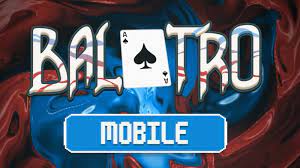The Joker card, often seen in decks of playing jokercard.ca balance cards, is a unique and intriguing element that has transcended its original purpose. This card is characterized by its whimsical and often colorful design, typically featuring a jester or clown figure. While it may seem like just another card in a deck, the Joker has taken on multiple meanings and uses in various contexts, from games to psychology and popular culture.
Historical Background
The origins of the Joker card date back to the mid-19th century, primarily in the United States. It is believed to have evolved from the “Excuse” card used in the game of Euchre, which was a popular card game at the time. The Joker was introduced to the standard deck as a wild card, allowing players to substitute it for any card in the game. Its playful nature and ability to disrupt the expected order of play quickly made it a favorite among card enthusiasts.
Symbolism and Meaning
The Joker card is often seen as a symbol of unpredictability and chaos. Unlike other cards that represent specific values or suits, the Joker embodies a sense of freedom and versatility. It is both a trickster and a wildcard, capable of altering the dynamics of a game or situation. This duality can be interpreted in various ways:
- The Trickster Archetype: In many cultures, the trickster figure challenges societal norms and conventions, often bringing about change or revelation. The Joker embodies this archetype, serving as a reminder that rules can be bent or broken.
- Uncertainty and Chaos: The Joker’s unpredictable nature reflects the chaos of life. It symbolizes the unforeseen events that can change our paths, much like the twists and turns in a card game.
- Playfulness: The vibrant and often humorous design of the Joker encourages a sense of fun and spontaneity. It invites people to embrace their playful side, reminding them not to take life too seriously.
Uses in Games
In card games, the Joker serves various functions depending on the rules. In many games, it acts as a wild card, providing players with strategic advantages. For example, in Rummy and Canasta, players can use the Joker to complete sets or runs, while in games like Poker, it can substitute for any card to form a winning hand. The flexibility of the Joker enhances the complexity and excitement of card games, making it a beloved card among players.
The Joker in Popular Culture
The influence of the Joker extends beyond the realm of card games, finding its way into literature, film, and art. The character of the Joker, particularly in the context of the Batman franchise, has become a cultural icon. Portrayed as a chaotic villain, the Joker represents the darker aspects of humanity—madness, unpredictability, and anarchy.
Notable portrayals, such as Heath Ledger’s performance in The Dark Knight and Joaquin Phoenix’s interpretation in Joker, have redefined the character, adding depth and complexity. These portrayals resonate with audiences, exploring themes of mental health, societal rejection, and the fine line between sanity and madness.
In literature and art, the Joker often symbolizes the absurdity of life. Writers and artists use the figure to critique societal norms, challenge perceptions, and explore the complexity of the human experience.
Psychological Interpretations
Psychologically, the Joker can be seen as a representation of the shadow self—the parts of our personality that we may hide or repress. This aspect invites individuals to confront their inner chaos and embrace their multifaceted nature. By acknowledging the “Joker” within, people can find balance and authenticity, fostering personal growth and self-acceptance.
Conclusion
The Joker card, with its rich history and multifaceted meanings, serves as a powerful symbol of unpredictability, playfulness, and the complexities of human nature. Whether in card games, popular culture, or psychological exploration, the Joker invites us to embrace uncertainty and find joy in the unexpected. As we continue to navigate the intricacies of life, the essence of the Joker reminds us to remain adaptable and open to the surprises that come our way.

